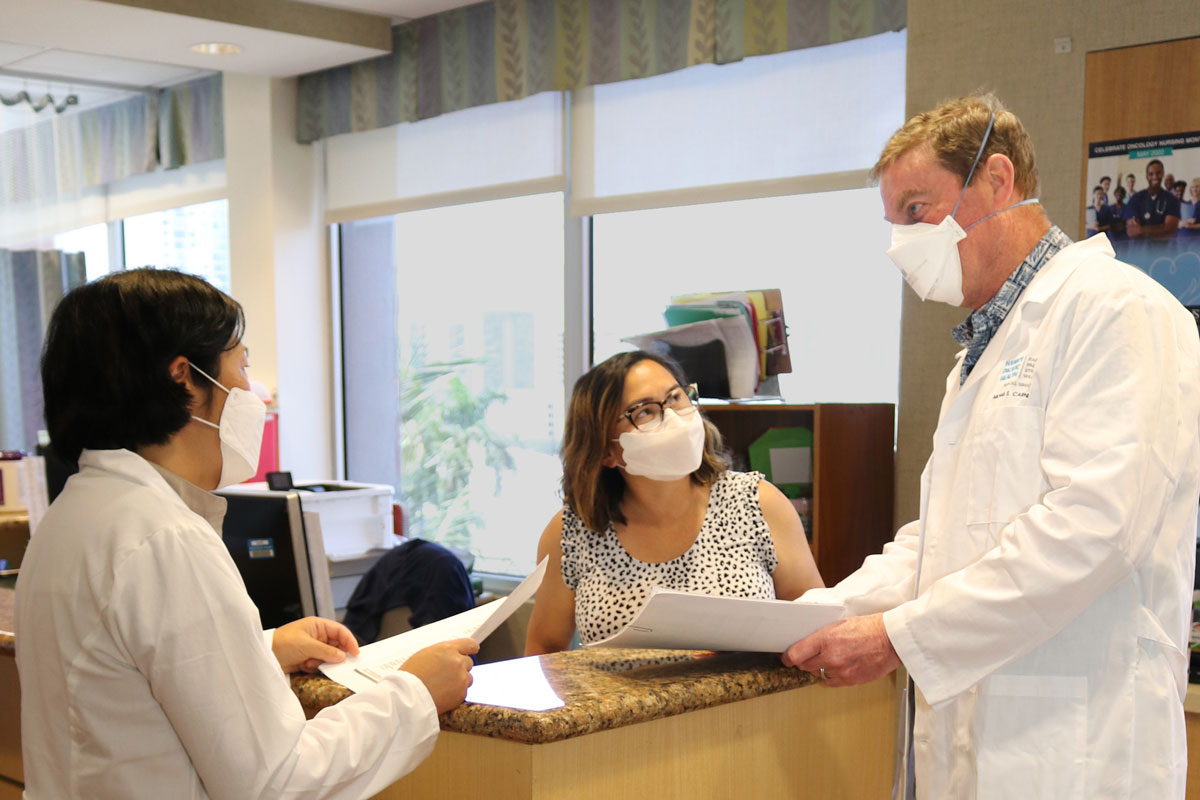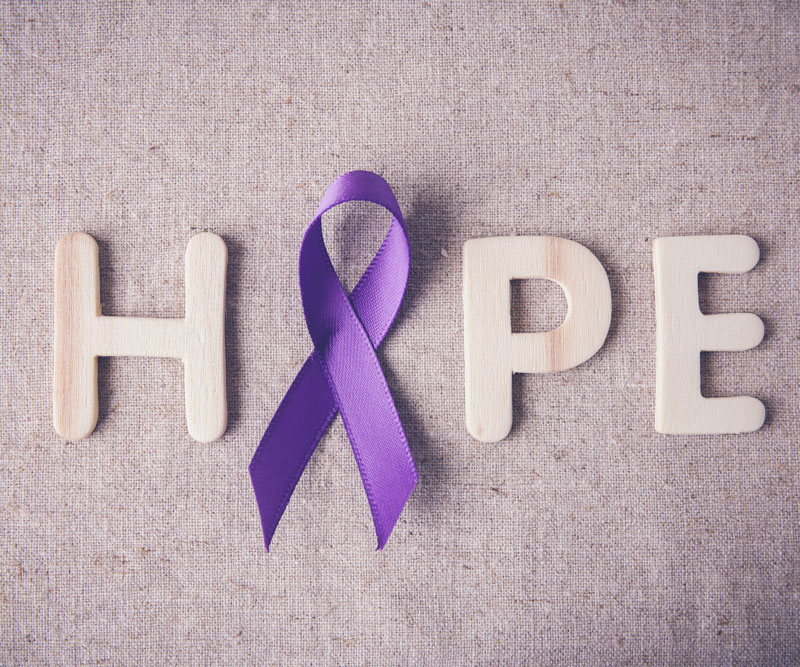
Treating Cancer with Teamwork
Possessing a wealth of experience, Dr. Michael Carney serves as the medical director of gynecologic oncology at Kapiolani Medical Center for Women & Children. He has been treating patients there for more than two decades.
Carney earned his bachelor’s degree at University of Illinois, Urbana and his medical degree from Stritch School of Medicine at Loyola University Chicago. He completed his residency and a fellowship in gynecologic oncology at Duke University Medical Center. He is also the Kosasa-endowed professor at University of Hawaii John A. Burns School of Medicine.
Gynecologic oncologists treat cancers of the ovaries, uterus, fallopian tube, cervix and any other that starts in women’s reproductive organs. They also take care of abdominal masses, complex pelvic surgery and surgical issues related to complications with pregnancy.
In this article, Carney delves into the details of his specialty and treatment options.
What treatments are the patients typically seeking?
Many of our patients come to us after their primary care physician or an emergency doctor have found a mass or other conditions which may be a gynecologic cancer. We frequently see patients with non-cancer or pre-cancerous conditions, as well as patients who require complex or minimally invasive surgical approaches, or chemotherapy. We are often with our cancer patients for life. Fortunately, with new drugs and treatments their lives can be extended for decades.
Why did you decide to specialize in oncology?
In medical school, I was interested in many different specialties. It was difficult for me to choose one. In the end, it was the enthusiasm of my professors, the spirit of my patients and the incredible opportunity for scientific discovery that led me to obstetrics and gynecology. It was during my residency at Duke University where the world-class gynecologic oncology faculty, opportunity for research and the most amazing patients, whom I really felt that I could really help, drove me to subspecialize in gynecologic oncology.
I am fortunate to be able to remove large tumors and achieve a cure in many cases, but also to help a patient through chemotherapy and the cancer journey. I love what I do.
How long can treatments take?
Some treatments involve surgery alone, which can last hours. Fortunately, with new minimally invasive approaches, patients can often go home the same day. If chemotherapy is indicated, infusions can take an hour or all day. Our most common treatment regimen involves infusions and medication given every three weeks for about six months. Our goal is to take care of the cancer, but also take care of the patient so that life during the cancer journey can be as close to normal as possible.
Fortunately, as an academic and teaching facility, Kapiolani is able to offer patients opportunities to participate in clinical trials with cutting-edge treatments. We take care of our patients – mind, body and spirit – and their families for as long as it takes.
At Kapiolani, treating cancer involves a team. Why and who is involved?
It takes a village. Our team is incredible and includes doctors such as the gynecological oncologist, radiation oncologists, pathologists, anesthesia, critical care, consultants as well as nurse practitioners, chemotherapy nurses, nurse navigators, nutritionists, pharmacists, clinical trial specialists and more.
Kapiolani also has a fantastic behavioral health program to help patients with depression or other challenges. We have healing touch programs, support groups and social workers to assist people with financial, emotional or other practical life questions. Our chaplain is always available.
Every patient is different, and we want to be there for every need.
How has treatment changed over the past few years?
I think cancer treatment has progressed in two major ways in recent years. First, we now have more than 50 medications available for gynecologic cancers and the number is growing. That second advancement is procedures which maximize treatments while minimizing the effects for patients. This includes radical cancer surgery done with minimally invasive means including the DaVinci robot here at Kapiolani.
Rather than spending weeks in the hospital, you are able to go home and return to normal life quickly with fewer complications. Medications are also becoming more effective with fewer side effects and can often be taken at home.
Kapiolani is building a new Cancer & Infusion Center. Why is the space so important for women cancer patients?
Patients deserve the best, and Kapiolani is committed to making that happen. Importantly, this means more space, more activity, more privacy and more opportunities for interaction for patients – both women and children – and their families.
Our vision is to bring all the components of cancer care together in one place so that the oncology team, nursing, researchers, pharmacists, social workers and navigators are available for patients and their families in one central location. We want it to be a place that is inviting, warm, and full of light and hope because I believe the psychological environment you are in has an enormous part in making that cancer journey successful.
What keeps you inspired?
I never cease to be amazed by my incredible patients and the team that comes together to genuinely care for them. I watch our nurses and staff go far beyond the call of duty to help patients every day.
My patients and their families are always teaching me about life. Cancer, paradoxically, can be a bit of a gift. The light is a little brighter, the smells are a little sweeter, and the sounds are a little more meaningful. Every day is a gift. Treasure every day.
This article was first featured in the Nov. 23, 2022, issue of MidWeek as a part of the "Dr. in the House" series. See the full publication here.
Published on: December 5, 2022




